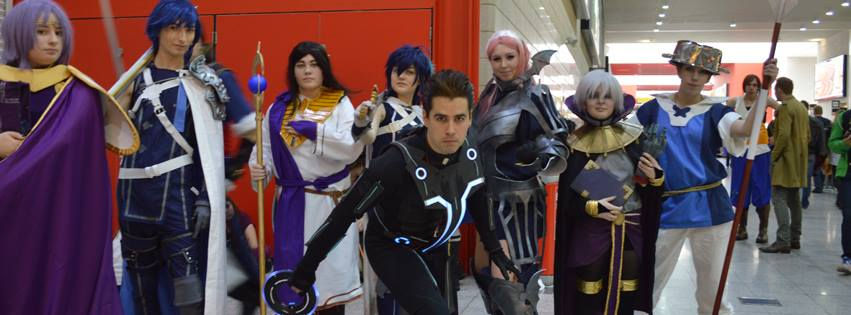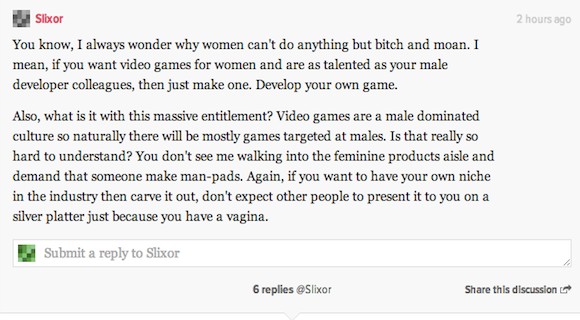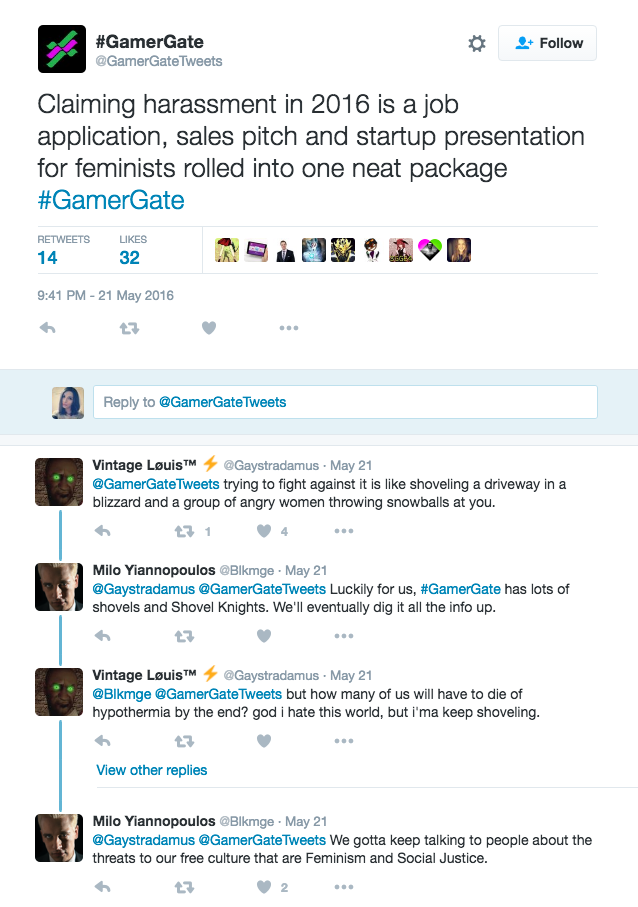
Longing for Belonging
Inside to the psyche of a superfan
“I don’t think I fell as hard for the series until I watched the first two seasons of Game of Thrones, found out the third one hadn’t been made yet, grew horrified, and inhaled all the books in George R.R. Martin’s A Song of Ice and Fire.”
“I don’t think I fell as hard for the series until I watched the first two seasons of Game of Thrones, found out the third one hadn’t been made yet, grew horrified, and inhaled all the books in George R.R. Martin’s A Song of Ice and Fire.”
It’s a cold Monday evening,and the hands on the clock are nearing nine. Finally! This is the moment you have been waiting for for the last week. And all the sacrifices that you have had to make! Not going on Facebook or Twitter, or any other social space for that matter, all day - only because America gets to have everything first. Damn that America! But it does not matter anymore, because the time is here. You have your comfy PJs on, you are surrounded by your favourite snacks and there is no one around to bother you.
The TV is on and there you have it, the thing you have been obsessing about with all your friends, the reason why you are not having dinner with your mum, although it is her birthday, the ultimate pleasure for your soul: Game of Thrones season finale. This is where you start humming the opening song in your head: thum, thum, ta, da, thum, thum, ta, da, thum, thum...
The next hour is pretty familiar: you are on the edge of the sofa, squeezing a pillow or the hand of the unfortunate person next to you, your face a weird mix of disgust and amazement and you just cannot believe they killed yet another main character whom you were so sure is going to survive all of this! There is even anger there. I mean, they killed Jon Snow… How do you forgive that? Anyway, the hour is over, the season is finished and a cold realisation quickly creeps in - you have to wait another year until the next one comes out.
Oh, the horror! How are you supposed to live without Game of Thrones for another year? You can barely wait a full week, let alone 52. So, after a short panic attack, you realise that there is only one solution: go on Amazon and order all six of George R.R. Martin’s books. You quickly do the math: six books, each one around 800 pages, that is… It does not matter, because it will take a long time until you finish all of them. Maybe it will even take an year.
Now, if you are not a fan, you are probably thinking by now that this is a massive exaggeration, a fantasy story just to make this story sound more interesting, but it is not. It is actually the way every superfan has felt at one point in their life. And that is how Dan Selcke, an editor on one of the biggest Game of Thrones fansites Winter is Coming, felt four years ago.
When you first see Selcke, you might as well think: “What a nerd!”, but do not be so quick to judge, because who is not a nerd, so it is fine to call each other names. When smiling he resembles Andy Samberg, who you might have recently seen in the TV series Brooklyn Nine-Nine and whom I will also describe as a nerdy, quirky looking guy. So, yes, Dan Selcke is a nerd with a capital “n”.
He first realised how much he loves the fantasy world after watching and reading Lord of the Rings. Soon afterwards, he fell in love with the whole genre to such an extent, that he became an editor and a writer not only for Winter is Coming but for Fansided, a website that mixes in interesting sports with sci-fi and fantasy entertainment.
“I don’t think I became more than just a regular fan until I started writing about GoT for Fansided. Then again, maybe I’m fooling myself. Even before I was getting paid to write about GoT I wasn’t happy just watching the show or reading the books. I had to know more! I had to look up the supplementary materials and talk about theories with other fans.”
Selcke says he spends more time thinking about fantasy than a regular person ever will, but for him this is not being a superfan; it is just a very interesting hobby, that consumes a lot of his time. He does not believe in the common image of a “geek” and says that “would only happen in an 80s-era movie about high school”. There is only one thing that separates a regular person from a true fan and that is the commitment which fans make to their favourite shows. And being an introvert, especially as a child, is the biggest trigger in his opinion.
“Being an introvert helps. Reading 1000-page books takes time and concentration, so fans should be comfortable spending time by themselves. That said, I don’t put much stock in the stereotype of the sci-fi fan who lives in a basement and stays glued to his or her computer.”
Dan Selcke is one of the many fans who have found a way to express their love for science fiction and fantasy genres. Some dedicate blogs and vlogs on the topics. One lucky bunch of those, just like Dan,actually get paid to do so. Others purchase their favourite character’s costume and show it off once an year at Comic Con, a convention for sci-fi, fantasy and comics lovers, where they get the chance to meet creators, actors and each other. But there is a third type of fan: the ones who still want more out of the experience. For them sharing theories on forums or buying Superman capes will never be enough. They want to express themselves in a new way; they want to show the passion they have been hiding for a long time; they want to create.
One of those creators is Martin Creany, a woodwork artist, who used his talent and his passion to create a wooden replica of the Millennium Falcon from Star Wars. Creany is a happily married Australian with a hipster looking beard and a friendly smile hiding behind it.
“It started with making an anime inspired build. One thing led to another and another. After every build I would have a hard time coming up with what to build next. Being a fan of Star Wars, that world, those vehicles, it seemed to make sense to try to build one. The Falcon was a favourite so it made sense to make it.”
Creany has been a fan of the Star Wars franchise since he was 10. That is what pushed him into discovering science fiction and the world of comics on a larger scale later in life. He still describes himself as an introvert person, but only because he prefers to socialise with other sci-fi fans more than with non-fans. He quickly makes it clear, though, that he does not like being called a superfan at all.
“The term superfan, to me, has a somewhat negative connotation. In that it brings to mind someone who has become, perhaps, obsessive in their interest. Their interests have narrowed to the point where they have only one thing in their life. It's the extreme end of the spectrum.”
Martin Creany has a lot of other interests, and even though he has built a wooden replica of the Falcon, he is a different type of a fan. For him, it is not unpopularity or the desire to belong that made him a fan, but just the simple idea of, “I like it, so I’ll keep on doing it”. He would never go and queue for hours for a film premiere or a new game release, nor would he collect autographs and photos. He is probably the type of fan we can all recognise: we would re-watch the films over and over again, get excited for the new one, maybe even read the books if there are any or have a t-shirt with the film title - but then we draw the line. The only difference between us and Martin is, that he used his fandom to challenge his woodcrafting skill and create something beautiful, while we use ours to kill some time on a Sunday afternoon.
Another fan, who actually spends some of his free time to create something, is Sean Hawie, the founder of Cosplay London,a monthly meet up for people who love to role-play in costumes of a certain sci-fi/fantasy characters. If you believe in the nerd stereotype, Sean Hawie will surprise you. He looks more like a Calvin Klein underwear model than a geek lover. One look at him and you will want to run to the nearest shop for a Supergirl costume and join his next cosplay meeting.
Hawie started the group after he spend three months creating the costume that turned him into a cosplayer for life: that of Sam from Tron: Legacy.
“It doesn’t have the best plot but the costumes blew my mind. For the first time I didn’t know how they made those costumes. If you’re slightly nerdy, when you watch a sci-fi film, you always think how much of it is SGI, how much is real. But with Tron I just couldn’t figure it out, so I became really passionate about that. I began building the costume and after three tries and three months, I finally succeeded. I still go with it to Comic Con! Once you figure out how it’s done and you actually build it, you just feel powerful whenever you wear it.”
Soon, the cosplay conventions in UK were not enough Hawie, and the idea that there were none in London really crushed him. So, he decided to organise one on his own and see if there would be any reaction at all.
“Now, we meet once a month, dressed up and just go to the pub to catch up. We don’t need a convention anymore to show off our favourite costumes, have fun and talk about nerdy stuff.”
Like many other fans, Sean Hawie was not a popular child in school. It was not until university that he actually found people who liked the same nerdy things as him, and felt good about it. He says that being an introvert child was what pushed him deeper into the universe of science fiction. That. And his vast imagination.
“If you don’t fall in the mainstream categories of liking football or pop music, or whatever else was popular at the time, then you tend to spend a lot more time on your own.”
Hawie compares football fans with sci-fi fans. He even calls them nerds. But why?
“If you talk to people in the pub about football, they can talk for hours about the last game their team played with such details. It’s just bloody geeky. There’s a massive paradox there, and it has a lot to do with our society. You hear people say football is a religion, and for a lot of people it is, but what those people don’t see is that the same love they have for football is the equivalent of the love Harry Potter fans have for the films and books.”
Even the terms are so a negative: “geek” was first used in 1916 to describe a circus freak show, and especially the performers, who were doing weird things, like eating the heads of small animals. The origin of the word “geek” comes from the German word “geck”, which translates to “freak”. “Nerd”, on the other hand, was first used in 1940s and comes from a modification of the word “nert”, which meant “crazy person”. Both terms describe an undesirable person: stigma carried by such fans until just a few years ago, when Hollywood realised that superheroes equal supermoney.
Science fiction and comics fan were in for a treat when Hollywood began making film after film using all-time favourite superheroes as a new money-making formula. There had always been the occasional Batman films but this new wave of science fiction took the cinemas by storm. And it did not disappoint. All of three Iron Man films took in 1.2 billion dollars. The Spider-Man trilogy is a close second with 1.1 billion dollars. The Avengers is one of the most highly grossing superhero films with 1.5 billion dollars. It comes as no surprise that Marvel is doing so many spin-offs, like Thor or Black Widow. It is not surprising either, that Iron Man 4 and 5 have already been confirmed. That is how the fans will end up watching Transformers 6, Indiana Jones 5, Avatar 4 and so on and so forth, until Hollywood finds another magic formula to help create even more wonga.
But now, with the success of all those superhero films came a surprise: feminism hit back. A new wave of discussion about diversity and sexism in the film industry and especially in the comics world hit unsuspecting world.
Scarlett Johansson's portrayal of Black Widow garnered a lot of criticism. She was seen as overly feminised and heavily underrepresented; as even her colleague Mark Ruffalo stated on Twitter. Johansson’s character was nowhere to be seen when it came to merchandise. Her action figurine was hard to find on any shop shelves and her face appeared on only four of the 60 original items after the release of Avengers: Age of Ultron. And this is not the first time it had happened: the same fate was given to Princess Leia from Star Wars and to Gamora from Guardians of the Galaxy. Marvel hit a new low when Shane Black, the director of Iron Man 3, said that he had to change his female villain to a male one, because of Marvel’s fear of poor toy sales. The only one that fares better is Game of Thrones; the directors said that this season will be all about the women. They have proved right so far.
This might make you think that all the female fans out there put a big red X on all the superhero films and decided to find a hobby that does not include so much sexism, but you would be wrong. Women, as it happens, are not all that bothered and keep on enjoying what they love, even if it makes them really angry at times.
Bethan Jones, a PhD candidate in Television and Film Studies in Aberystwyth University, has written many case studies on gender representation, inequality and stereotyping. She is also a superfan of the X-Files. Bethan’s cheek piercings and her pink hair should not fool you; she is a strong feminist and strongly supports the idea that women can be feminists and superfans at the same time, and that there is nothing wrong with that. If anything, it is for the better of the sci-fi world.
“It’s entirely possible to be a fan of problematic things: you can know they’re problematic, push back against that but still enjoy watching and I don’t see a contradiction in that. There are things I enjoy watching which I know have issues - The Walking Dead and its relationship with race is one example - and as a feminist I engage in discussion about it with others, write about it, read critiques and push back against the issue. If we raise awareness of something we can try and make positive changes, and fans sharing their disappointment with showrunners is one way of doing that.”
Jones has done a lot of academic work on the X-Files. She sees Dana Scully as one of the prominent female characters to be used as an example. Scully is a FBI agent, a doctor and “an all-round kickass role model”. She is not over-sexualised in any way and is not seen as the damsel in distress. If anything, she saves her male partner, Mulder, more than he saves her.
“I think that trope is one which is slowly being removed from modern sci-fi and being replaced by more nuanced characters - male and female - who both need to be rescued sometimes but in the service of the story rather than because one’s a man and the other’s a woman.”
Jones has also done work on a comic called My So-Called Secret Identity together with its creator Dr. Will Brooker. The main character in the comic is a girl called Cat, an average girl in her early 20s with a long list of superhero friends. She has been taught not to show off and avoid attention, because Cat is the smartest person in her city and people do not like smart. But as Will explains about her, “she’s getting tired of pretending, of hiding, of acting dumb to save other people’s feelings”. The comic was written when Will decided to stop criticising the mainstream comics about their representation of women, and instead show them how it is done. As Bethan says: “The comic was created specifically with the intention of moving away from the cheesecake depiction of women in superhero comics.”
There is another difference about this comic: the artists behind it. And the creators make sure to put that message across: “These very different artists offered a very different takes on the characters and their styles, but they had one thing in common. In a deliberate reversal of mainstream industry conventions, almost all of the creative team behind MSCSI are female.” A lesson Marvel needs to learn.
The wickedness of the geek community goes further than simply misrepresenting women.
“I don’t think I fell as hard for the series until I watched the first two seasons of Game of Thrones, found out the third one hadn’t been made yet, grew horrified, and inhaled all the books in George R.R. Martin’s A Song of Ice and Fire.”
At what exact time in the past did our society decide that being smarter than the average person - or just liking science fiction and fantasy - made someone “uncool”?




Photos of some of the interviewees and their work.




Some of the best costumes at Comic Con in recent years.

Just like Darth Vader, the world of gaming has taken to the dark side and has gone on a mission to destroy feminist rebels, using their Death Star, the hashtag GamerGate.
#GamerGate is now considered an online movement interested in the ethics of games journalists, but it actually started with a more vicious plan: trolling a female game developer, Zoe Quinn. Back in 2013, Zoe was the victim of death threats and harassment after trying to publish her text-based game Depression Quest, which was based on her own experience with depression.
The harassment took on another level in August, 2014, when her ex-boyfriend, Eron Gjoni, posted several blogs accusing Quinn of cheating on him with five other men, all of which were important names in the game journalism community. The scheme took root and other gamers decided she has actually done it in order to get her game published. Soon after, Quinn’s address and phone number were made public and the threats became so intense, she had to change her number and leave her house, being forced to sleep on her friends’ sofas.
The evil takes name in the imageboard website 4chan. Out of spite and in order to degrade Quinn’s female-centric game jam, Rebel Jam, the guys behind 4chan (mostly white man, who are desperate to maintain the deception that they are misrepresented) started supporting the Fine Young Capitalists’ female-created video game project, Afterlife Empire. They took on the role of creating a female character for Fine Young Capitalists to represent all the women in the gaming community. FYC, for their part, promised to include the character in the next game they create. That is how, out of spite and thanks to a lot of intolerance, Vivian James was born and has somehow managed to become a symbol for women in gaming.
After a lot of criticism, the Fine Young Capitalists responded only with: “When you say that 4chan cannot take part in the project, you are oppressing them.” - and that is where you might simply give up on the world.
Zoe Quinn is not the only victim of this kind of harassment. The trollers have a whole list of “social justice warriors” or SJW. What is a SJW? Well, if you open the Urban Dictionary, this is the sweet explanation you will find:
“A pejorative term for an individual who repeatedly and vehemently engages in arguments on social justice on the Internet, often in a shallow or not-well-thought-out way, for the purpose of raising their own personal reputation. A social justice warrior does not necessarily strongly believe all that they say, or even care about the groups they are fighting on behalf of.”
So, 4chan and all the other trolls supporting them have already come up with a term to easily dismiss feminists who bring up sexism and misrepresentation.
Anita Sarkeesian, is another victim. She is a media critic, who created the blog Feminist Frequency, a video website that explores the representation of women in mainstream pop culture and highlights the problems women face online and in the gaming space. She had to deal with constant threats of rape and murder. There is even a game in existence, in which your main object is to beat to death Anita Sarkeesian. And when she blocked all the comments to her YouTube videos, trolls said that she was trying to censor them.
#GamerGate’s complains even reached the multinational technology company Intel, and they were forced to remove all its adverts from a video game website, called Gamasutra. #GamerGate took offence after one of the website’s journalists, Leigh Alexander, wrote that gamers are becoming irrelevant as “angry young men” grow up and the medium is all about including new audiences.
Another hashtag became popular around the same time, #1reasonwhy. It happened overnight after Luke Crane, a fantasy role-playing gamer, asked “Why are there so few lady game creators?”. Thousands of women from the game industry took on the hashtag as a tool to share their various stories about sexism in the workplace. Numbers started popping up and it quickly became clear that although 47% of the gaming audience are women, more than 88% of the industry’s employers are men.
So, although #GamerGate believes that it is actually a movement against corruption in the game journalism world, it is actually an evil force that keeps on trolling strong feminists and until the present moment, three years later, still does not miss a chance to undermine Zoe Quinn in every way possible.
Zainabb Hull is a strong feminist who does not like the representation of women and has been excluded from the “geek” community numerous times. That does not stop her liking the genre, though. With her kooky hair, piercings on her face and a big tattoo on her right leg, Hull looks more like a Metallica fan. The only thing that screams “nerdy” about her is that she sometimes wears glasses. Well, and her love for cosplay. She does not consider herself an introvert but more of an explorer. One thing that becomes clear straight away, when she starts talking about the geek culture, is that she really does not like it.
“Personally, geek culture has never been particularly welcoming of me. I’m a woman and this has been harmful to me and many others like me. You’re not really supposed to be in “geek culture” - you’re not a “real fan” or a “real geek” - you’re not good enough to be amongst the mostly straight, white, male audience that geek culture is most well-known for.”
Of Arabic origins, Hull feels very strongly not only about the exclusion of women in the fan world, but also of people of colour. She is trying to fight as best as she can to change the stereotypical idea of what a geek looks like.




Tweets from GamerGate and #1reasonwhy.
Anita Sarkeesian criticising game creators about their over-sexualisation of female characters.
“Women and people of color absolutely aren’t new to geek culture, but they’ve frequently been kept invisible by racism and sexism and other prejudices that can still be seen in the industry and in fans today. I want “geek” and “nerd” to be used more so that we can see those labels as being inclusive of anyone regardless of their gender, ethnicity, sexuality, disability, etc.”

An author, who ows to his readeres.
Illustration by David Highes
For her, this exclusion comes from the fans who have been bullied and ostracised. Those people cling to the identity of being forever misunderstood, forever the bullied and anxious kid; and those people are the ones trying to turn geek culture into their own special club, because they are scared of letting go of that identity. It is their safe place.
“But it also can harm other people, and it’s refusing to see yourself as a capable, strong adult regardless of your past. I absolutely see this more in straight white men than in marginalised geeks! Because straight white men may have been bullied and gone through awful stuff, but it stopped at school, whilst everyone else has to constantly deal with the same things and worse, so they are forced to look after themselves, forced to accept reality as an adult as a much earlier age, and forced to understand a different perspective.”
However, straight white man do not really agree with Zainabb. Matt Shea is an example of someone that was bullied as a child, because of his interests in sci-fi. He says that being called a “geek” and a “nerd” was hurtful when he was young but as growing up, it turned into a symbol. Shea is the exact geek stereotype that Zainabb is trying to change. He is young, he is white, he is a man and he is nerdy. He even has a YouTube channel, where he posts funny geeky videos of him playing games like War of the Monsters. That might sound boring to you, but to the more than a million people, that have subscribed to his YouTube channel, it sounds like heaven.
Matt Shea disagrees with Zainabb’s theory, that just because he was called mean names as a child, he is still living with an identity which he is reluctant to give up.
“Just because I like watching movies about Jedi Knights or dragons, and playing with Lego and board games, doesn’t mean that I don’t pay a mortgage, work full time and live an adult live.”
Shea does not see himself as a superfan, although he fell in love with science fiction at the early age of six. That does not mean, that he does not have friends, that are a tiny bit more obsessed about the genres.
“A friend of mine, who’s a girl, punched another fan for pushing in line at a ComicCon for getting Thor’s signature. She was obviously thrown out, but I still find it hilarious!”
Although fans do quite often go the extra mile with their hobbies, none want to be called a superfan. It is not that they do not realise their passion towards the science fiction genre, but more that the word “superfan” seems to carry a negative meaning.
Lyubomir Grancharov, a producer for visual effects company Battleship, is another fan who does not agree with the commercial view of superfans. He sees the geek community as a mixture of all sorts of people from all kind of backgrounds, who share a wide imagination and like to think there is more to the world, than the boring daily routine.
“I really disagree with the most common model established by our society that the sci-fi and fantasy fans are introverts who never crawl outside of their basement to see the sunlight… We aren’t superfans. We just like to do what we’re passionate about.”
Grancharov gives the impression more of a cuddly teddy bear than of a sci-fi geek. His smile is so sweet, it is hard to imagine that this nice guy actually enjoys watching the blood-filled grotesque scenes in Game of Thrones, that make everyone cringe. He first became a fan after reading Robert Jordan’s saga Wheel of Time and 15 years later, still considers that the opening passage for the first book is how his journey into the fantasy world began.
Grancharov does not find the common stereotypes offensive. On the contrary; he think that the people that are labelled as “nerds” are actually very intellegent people with interesting personalities, who chose to do what they love and do not pay attention to the general opinion.
“People just like to create stereotypes of the things, which differ from their mind-set and which they don’t fully understand. It’s easier to judge than to accept people for what they really are.”
Nevertheless, the terms “nerd” and “geek” still seem to hurt some of today’s fans. Like Anthony Browne, a software engineer and a Star Trek fan. Browne is yet another stereotypical geek, with the glasses and the t-shirt, advertising The Flash. He is very sweet and a bit shy, when talking, but that just makes him even more likable. He also does not see himself as a superfan, as he associates the word with people, who enjoy it “to the extent that they live it”. But he also finds “nerd” a very offensive word.
“To me, “nerd” implies to someone, who sits alone all day and spends a lot of time doing one thing. I go to conventions, dressed as characters and explore the Star Trek world. That’s why I don’t mind being called a geek, but I’m definitely not a nerd!”
Browne does not see a brighter future for the geek community, even with the new trend of superhero films and fantasy blockbuster series. For him, the mainstream interest would never be enough to make a person on the street not think a group of people, all dressed up, as a group of weirdos.
But is that actually true? Professor Adam Roberts from the Royal Holloway University, thinks differently. Professor Roberts teaches Literature and Creative Writing. Until recently he was teaching Science Fiction.
“Now we can see quite a few students coming through, whose first experience of really falling in love with reading was Harry Potter. That is why I currently teach a big third year unit on Children’s Literature.”
Professor Roberts is also the author of 16 fiction novels. He started reading Isaac Asimov at the age of eight, which made him love science fiction, reading and made him dream of becoming a fiction writer himslef one day.
“It’s the writing part of writing I enjoy the most. Not so much of getting published and certainly not making awards shortlists, but the actual writing. I love reading, but writing is like reading… only more so. More immersive and absorbing, and exciting.”
Well, that is probably what George R. R. Martin was saying before 2011, but surely he now enjoys his walks on the red carpet more than being sent angry emails from fans, who just simply do not understand why is it taking him this long to write the sixth book from A Song of Ice and Fire. “Seriously, George, just write it!”
Some fans have gone further than the occasional bitter letters. They defame George R. R. Martin and criticize his laziness. This is how many blogs and websites came to life: Is Winter Coming?, a wordplay with Stark family’s motto “Winter is coming!”, Finish the Book, George! And even The Slothenly Author. Ouch!
The two brothers behind Finish the Book, George! have been very active with their honest criticism over the years and you can easily see the anger that has filled their blog.
“Considering GRRM's output rate, we realized that we might be writing this blog for another ten years until the last book is out. Ten years. I mean, at some point, I'm going to run out of parody scripts, or snotty remarks, or cocaine. And then where will we be?”
That was one of the last posts the brothers made, before giving up on poor old George and finding something better to do. Like, maybe reading the already published books over and over again. Or finding another lazy author to bully. Even better!
It becomes clear that the world of science fiction, fantasy, comics and even gaming is not just a fun place, filled with cuddly ewoks, where one can go and escape from the boredom the grey everyday. Like the cuddly ewoks, it has a darker side that you can experience only if you get too close.
Mainstream culture has helped us to see the people interested in anything else, apart from what is fashionable at the moment, as “nerds” and “geeks”; words that we throw around without ever stop to think if we are actually hurting someone’s feelings. People who are superfans do not want to be called “superfans”, because of the negative meaning that this term still carries. And although more and more people are starting to explore and like those genres, there is a long way to go until Han Solo becomes mainstream.
The real problems start once you find yourself as a part of this community. Actually that is relevant only if you are a woman or a minority. That is when the “real geeks” are people, who survived bullying when young and now are taking on the role of the bullies. It is a place, where man can still feel superior to women, while hiding behind screens, where the wallpaper is actually a semi-naked girl. It is a place, that has not evolved since the 1950s and “white middle aged men” are the only ones that matter.
No one outside of this vicious circle actually realises the problems in the geek community and even if they do make it to the big media outlets, no one really takes it seriously, because being a fan of Chewbacca is a childish thing - and no one has time for childish things.
One feeling slowly creeps in, when talking to superfans, one that you would not expect at all. The feeling of envy is common. Seeing the passion that fans have for their hobbies is something not everyone can relate to. The twinkle in your eye, when talking about the latest cosplay; the slight tremble of the hands, when you are about to buy a ticket for the Star Wars premier; the fast beating of your heart, when you go to your first Comic Con.Such intense emotions elicit envy. And most powerful of all, is the longing of belonging. Because that is what everyone wants: to be accepted and to belong somewhere.
So, on the next cold Monday evening, when the clock is nearing nine and you have your comfy PJs on, and your favourite snacks are laying around, and your mum has forgiven you for missing her birthday, don’t only watch Game of Thrones. Experience it! Let it take you through its magical world of dragons and white walkers, let it capture your mind in a way you have never experienced before, let it show you all its beauty but all its problems, too. And think! Think about all the times you have made fun of someone because they look “geeky”, of the time you made that boy in second grade cry because his Star Trek themed lunchbox, of every time you were surprised when a woman said she adores reading and collecting comics.
And, if you actually do all those things and more, well then, you, my friend, are a nerd! Enjoy the party!

















